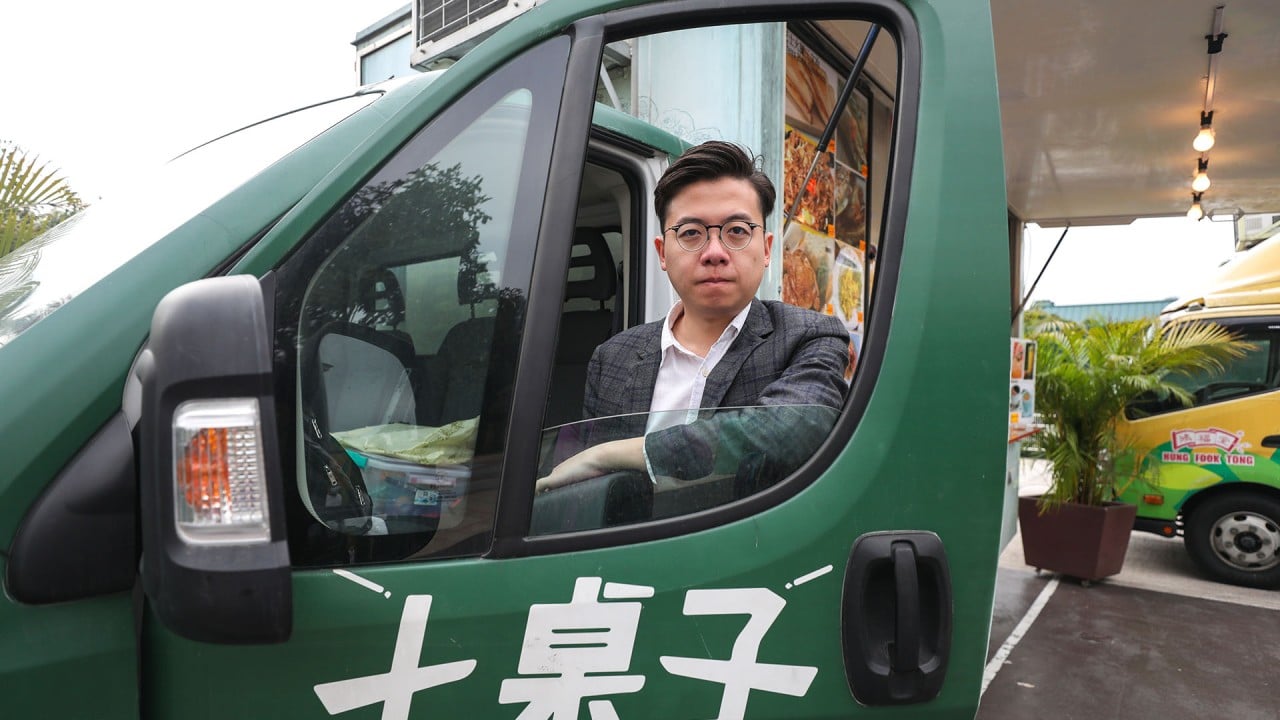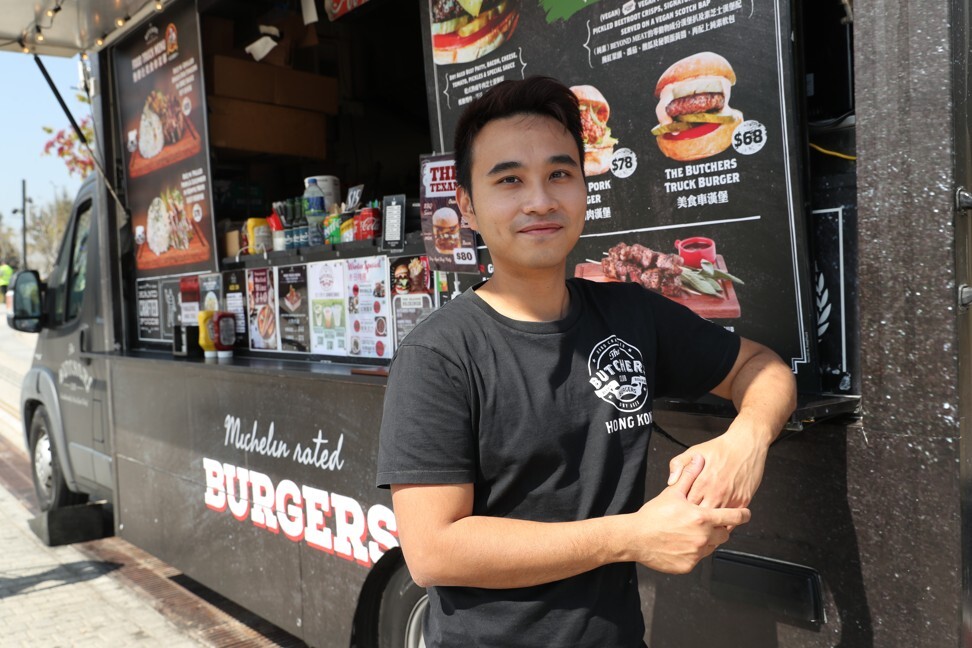Covid-19 deals killer blow to Hong Kong food trucks, as more operators abandon scheme
- Only two of 15 food trucks still operating four years after scheme was launched with fanfare
- Operators say subsidy from government’s pandemic relief fund was ‘a drop in the bucket’

Hong Kong’s experiment with food trucks appears on the brink of collapse, generating only HK$1.21 million last year as most operators decided working was not worth their while.
The total revenue was HK$10.27 million (US$1.32 million) in 2019, when the scheme was already showing signs of ailing before anti-government protests affected takings. The Covid-19 pandemic dealt a killer blow to the pilot project.
The scheme kicked off with fanfare in 2017, after a competition was organised to select food vendors on wheels to add some buzz to Hong Kong’s street food scene.
After a promising start, complaints started pouring in from operators, about poor, fixed locations and other rules they said hurt their business.
From 15 trucks at the start, only one was still operating regularly at the beginning of this month. Another has been appearing mainly on weekends. The rest are either locked in car parks or no longer in operation.
The Butcher’s Club food truck was still offering its signature American beef burgers and beef rice at the West Kowloon Cultural District arts hub.
“I try to work as much as I can because there are more customers around, especially on the weekends,” said the truck’s general manager, Leo Choi Chun-keung. “Tourists have disappeared. We are relying on local people, construction workers and staff of the arts district.”
The arts hub and sprawling waterfront park have remained popular with Hongkongers eager to spend some time outdoors amid the pandemic, with all the social-distancing measures and restrictions on gatherings.
Choi decided to station his food truck at the West Kowloon Cultural District from last December to March.
“Demand is quite strong at this location, the only bright spot for business,” he said. “Our revenue in December alone recouped quite a lot of the ground we lost last year.”
Despite that, his truck suffered losses in 2020.
On weekends this month, the Pat Chun Saucy Truck has turned up next to Choi’s truck, selling fried rice.
Like others in the tourism sector, the food trucks were hit hard when Hong Kong visitor arrivals collapsed 93.6 per cent to just 3.56 million last year from 2019. Hong Kong had a record of 65.1 million visitors in 2018.
The Tourism Commission said food truck operators were given a 75 per cent discount on rents so they paid HK$80 to HK$140 a day for the locations where they were allowed to operate.
It said only five out of 12 venues were still available to the food trucks.
The most lucrative spots, at Hong Kong Disneyland Resort on Lantau Island and Ocean Park in the Southern district, have been closed since early December because of the fourth wave of coronavirus infections.

03:05
Hong Kong food trucks demand policy changes to save their businesses
The five locations are the West Kowloon Cultural District, Golden Bauhinia Square in Wan Chai, Wong Tai Sin Square, Central Harbourfront Event Space, and Energizing Kowloon East Venue 1 in Kwun Tong.
One of the operators, who owns three food trucks, said most of these locations were unattractive.
“The government asks us to serve districts such as Wong Tai Sin and Kowloon East, but there are very few customers there,” said the owner, who only wanted to go by his surname, Cheung. “Meanwhile, those places popular with visitors are closed.”

He said there was a brief period last October when Hong Kong’s Covid-19 situation looked good and the business improved.
But the spike in infections in late November hit the food trucks again. “After the social-distancing measures were tightened again, business came to a standstill,” he said.
In December, he decided to leave his trucks locked at a car park and began working part-time in cafes or restaurants.
I hope the government won’t sit and wait to see us die naturally
Cheung said his trucks, including Book Brothers selling Beijing roast duck buns and Table Seven x W. Burger offering hamburgers, lost HK$500,000 last year.
The commission said the truck operators were entitled to some relief from the government’s anti-pandemic funds last year, including a one-off HK$80,000 cash subsidy per truck.
But Cheung said the subsidy was “a drop in the bucket” compared to his monthly payments of about HK$18,000 for parking fees and repayment of mortgage loans for the trucks.
Tourism sector lawmaker Yiu Si-wing said if the operators wanted to quit, the government should discuss compensation or subsidies with them.
He hoped the food truck scheme would continue, and urged the government to make it more business friendly by further relaxing restrictions on the operators.
Operator Cheung said: “I wrote a lot of letters to the Tourism Commission and even [Hong Kong Chief Executive] Carrie Lam asking for help, but there was no response.
“I hope the government won’t sit and wait to see us die naturally. If it is not willing to sustain the scheme in the long run, it should scrap the scheme and compensate us.”